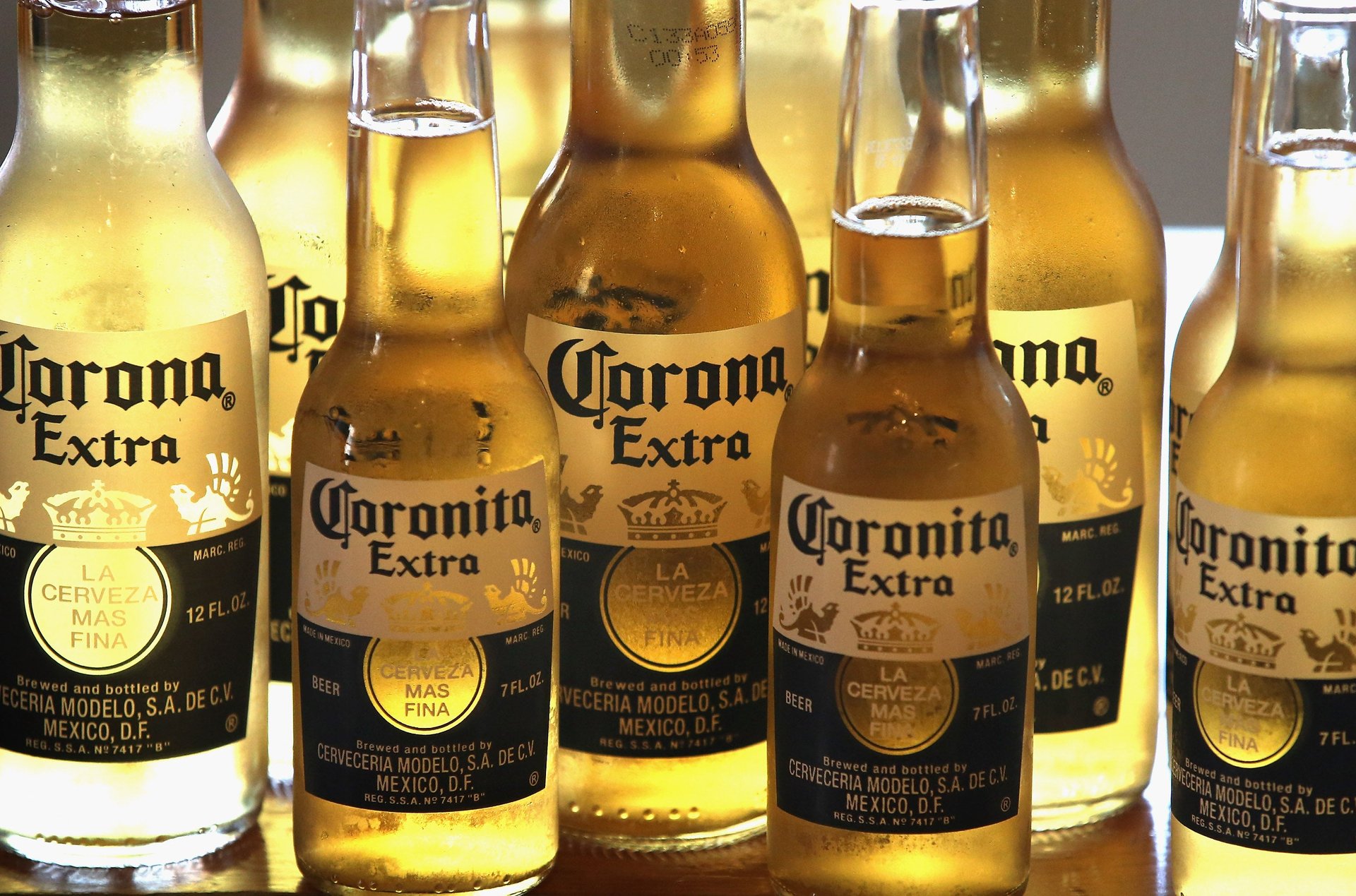How Mexican-imported beer helped Cinco De Mayo become an American holiday
Fast-growing brands like Corona and Modelo have helped make the holiday one of the biggest days of the year for beer sales

Cinco De Mayo—a minor Mexican holiday celebrating an improbable 19th-century military victory over the French—has become one of the biggest days of the year for beer sales in the US, largely due to Mexican-style beer’s rapidly growing popularity.
Suggested Reading
Much like St. Patrick’s Day, Cinco De Mayo celebrations in the US have shifted away from the holiday’s origins, becoming a way to celebrate Mexican-American heritage with traditional fares like tacos and churros, as well as alcohol like tequila and beer.
Related Content
According to the Washington DC-based Beer Institute, Cinco de Mayo is one of the biggest American holidays for beer sales, especially at restaurants and bars. In 2022, volume sales were 8% higher the week of Cinco de Mayo compared to an average week throughout the year. Commercial sales were even higher, with an increase of 12% compared to an average week in the year.
In fact, a 2013 Nielsen study of beer consumption found that more beer was consumed during Cinco De Mayo than during the Super Bowl.
According to Danelle Kosmal, vice president of research at the Beer Institute, the increasing popularity of Mexican imported beers like Corona and Modelo has helped boost celebrations for Cinco De Mayo.
“While all types of beer get a boost [on Cinco De Mayo], it isn’t surprising that imported beer experiences the biggest boost—up nearly one share point of beer compared to the rest of the year,” Kosmal said in an interview with Quartz. “Mexican imported beer is, of course, driving that boost, as the segment has experienced year-over-year growth for years. The latest trends show Mexican imported beer up 12% for the month of March compared to last year.”
It’s not just beer, however. Reports suggest that on Cinco De Mayo, Americans consume a staggering 126 million liters of tequila. According to IWSR—a firm analyzing alcohol market trends—the holiday has helped drive the popularity of the agave-based spirit, with the US consuming more tequila than any other country in the world.
The importance of Mexican culture in the US: by the digits
37.2 million: Number of Americans with Mexican origin, or more than a tenth of the US.
60%: Percentage of the US’s Hispanic population with Mexican heritage.
$80.3 billion: Estimated annual revenue of Mexican restaurants in the US.
#4: Mexican-style Taco Bell is the fourth most popular fast food restaurant in the US. Chipotle is ranked at ten.
6 million: Weekly viewers of Spanish-language telenovelas in the US.
24%: Increase in Latin music revenue in 2022 in the US, exceeding the broader industry. Domestic revenue for Latin music surpassed $1 billion for the first time last year.
A brief history: Cinco De Mayo’s history lingers today
Cinco De Mayo celebrates the anniversary of the Battle of Puebla, where an outnumbered Mexican army battalion secured an unlikely victory over French troops in 1862.
The French invaded Mexico roughly 40 years after the country had secured its independence from Spain. Despite Mexico’s declared sovereignty, the terms of its independence mandated that the country pay off a staggering amount of foreign debt to European nations that had spent the last three centuries plundering Mexico of its natural resources.
In 1861, Mexico declared a moratorium on the repayment of foreign debts, prompting the English, Spanish, and French to invade the country. The English and Spanish withdrew after one year, but the French continued on, occupying Mexico for five years and extracting further wealth from the country.
This post-colonial struggle echoes today in the speeches of Mexico’s populist president Andres Manuel López Obrador, who has recently begun the process of nationalizing major mining and energy industries.
Obrador has pointed out that foreign firms still control much of the country’s natural resources, despite Mexico’s independence. He recently condemned US influence in the Mexican economy in a speech announcing renewed ownership of the country’s power plants. “Mexico is an independent and free country, not a colony or a protectorate of the United States,” he said.